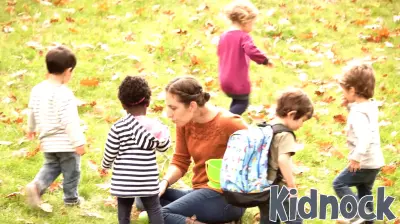Andy Reid Encourages Patrick Mahomes to Expand His Family
January 16, 2025 - 02:51

In a heartfelt moment, Kansas City Chiefs head coach Andy Reid offered some lighthearted yet meaningful parenting advice to quarterback Patrick Mahomes. Following the arrival of Mahomes' third child, Reid playfully suggested that the Super Bowl MVP consider continuing to grow his family. The exchange highlights the close-knit relationship between the coach and the star player, both of whom have experienced significant milestones in their personal lives.
Reid's comments come at a time when Mahomes is not only focused on his responsibilities on the field but also embracing the joys and challenges of fatherhood. As a leader in the locker room, Mahomes has often spoken about the importance of family and how it shapes his approach to the game. Reid’s encouragement reflects a supportive environment within the Chiefs organization, where personal growth and family values are celebrated alongside athletic achievements. The bond between Reid and Mahomes continues to strengthen as they navigate both professional and personal journeys together.
MORE NEWS

February 6, 2026 - 04:31
Parenting in Denmark feels very different from the USMoving from the United States to Denmark presented one mother with a profoundly different approach to raising children. The experience, she explains, is rooted in a foundational societal trust that...

February 5, 2026 - 02:33
Lindsay Gives an Update on “Mom Life” and Ex Turner During Her Summer House ReturnA preview for the upcoming episode of Summer House offers a glimpse into Lindsay Hubbard`s new life as a mother. In a conversation with co-star Ciara Miller, Hubbard opened up about her daughter,...

February 4, 2026 - 00:10
You’re Not Doing It Wrong—You’re Parenting a Young ChildA new workshop series is offering a refreshing lifeline to parents of infants, toddlers, and preschoolers, reframing the daily challenges as a normal part of development rather than a series of...

February 3, 2026 - 05:50
Team Parenting: Why Anushka and Virat see raising kids as a shared journey - The Times of IndiaWhen Anushka Sharma and Virat Kohli speak about parenting, what stands out is not dramatic emotion or grand declarations. It is the language of adjustment. The power couple, parents to daughter...